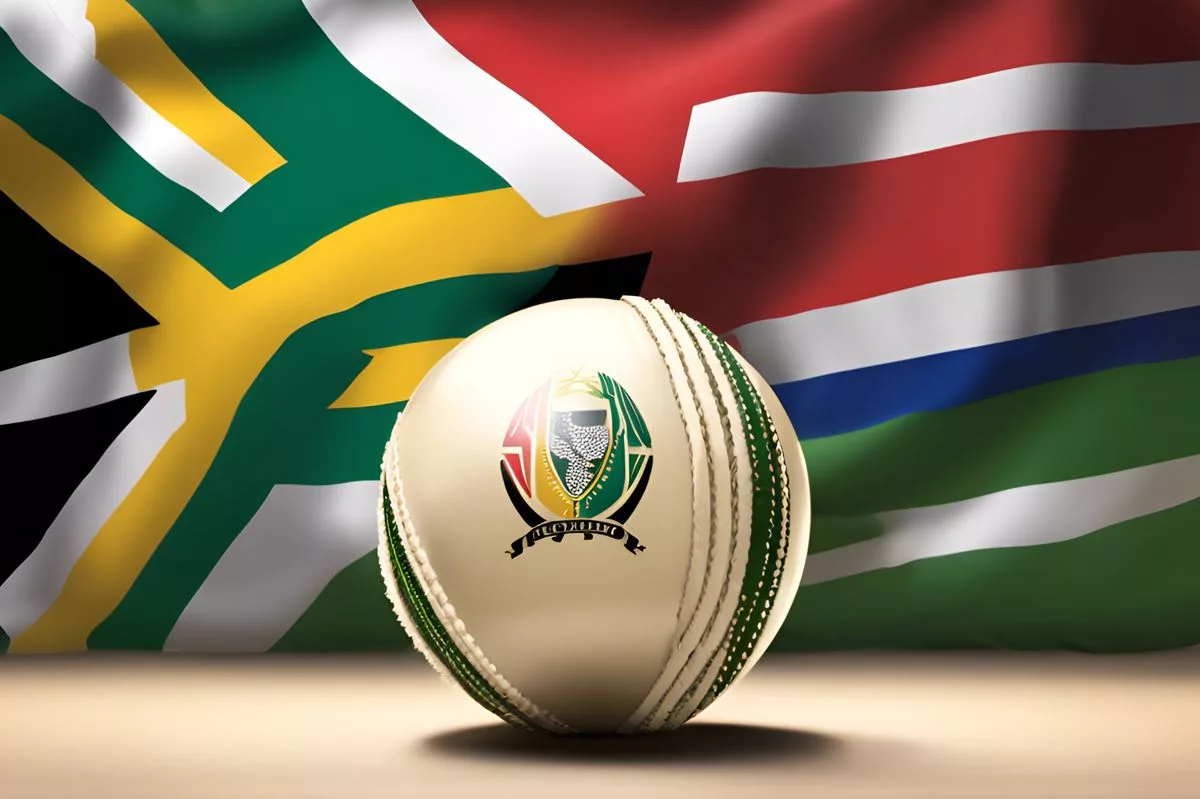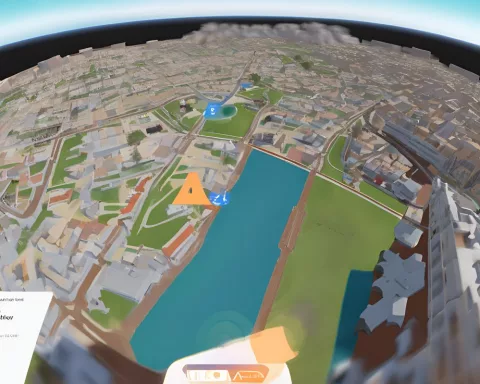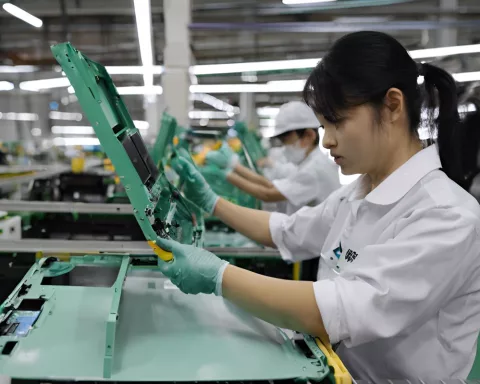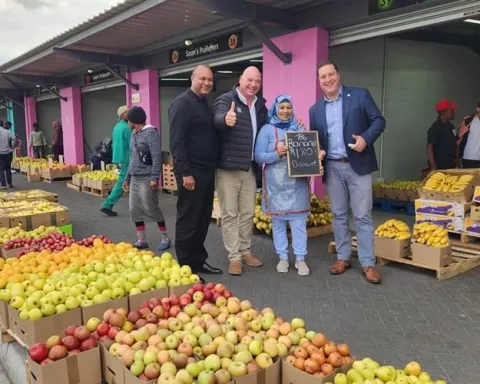South Africa’s journey towards development is intertwined with democracy, as evidenced by foundational documents like the Freedom Charter, Reconstruction and Development Programme, and the Constitution. The National Development Plan empowers South Africans with a vision of a more inclusive economy, a stronger state, and a society underpinned by leadership and partnerships. While there has been progress over the last three decades, major challenges remain, particularly in youth unemployment. Engaging with the youth and creating a supportive environment that empowers and uplifts them is critical for the country’s future.
What is the relationship between democracy and development in South Africa?
In South Africa, democracy and development are inherently intertwined. Foundational documents like the Freedom Charter, Reconstruction and Development Programme, and the Constitution of the Republic of South Africa have shaped the country’s development over the last three decades. The National Development Plan empowers South Africans with a vision of a more inclusive economy, a stronger state, and a society underpinned by leadership and partnerships. However, the journey towards development hasn’t been without its hurdles, and major challenges remain, particularly in youth unemployment.
Minister Ramokgopa’s Keynote Speech
As dawn broke over the Pan-African Parliament, Ms. Maropene Ramokgopa, the Minister in The Presidency for Planning, Monitoring and Evaluation, ascended the podium. Her keynote address at the Development and Democracy Intergenerational Dialogue was eagerly anticipated. The minister was expected to delve into the intricate ties between democracy and development, using South Africa’s past and future as a reference point.
South Africa commemorated 30 years of liberty and democracy on April 27, 2024, an occasion underscored by the stirring words of President Cyril Ramaphosa, “South Africa today is infinitely better than it was thirty years ago.” The celebration wasn’t merely a salute to democratic freedom, but it also marked three decades of development, symbolizing the nation’s endurance and progress.
South Africa’s Road to Development
Ramokgopa started her talk with a historical recap, delineating the policy frameworks that had steered South Africa over the last three decades. The Freedom Charter of 1955, the 1994 Reconstruction and Development Programme (RDP), and the 1996 Constitution of the Republic of South Africa were some of the foundational documents that shaped South Africa’s development.
The 2012 National Development Plan (NDP), a significant leap towards lowering poverty and inequality by 2030, shines as a beacon of hope. It empowers South Africans with a vision of a more inclusive economy, a stronger state, and a society underpinned by leadership and partnerships. This plan is a testament to the country’s dedication to intertwining democratic principles with sustainable, inclusive development.
Like many emergent democracies, South Africa acknowledges the interdependence of democracy and development. This understanding aligns with international development frameworks, including the 2030 Agenda for Sustainable Development, the African Union Agenda 2063, and the Regional Indicative Strategic Development Plan of the Southern African Development Community.
Overcoming Challenges and Celebrating Progress
However, the journey towards development hasn’t been without its hurdles. Over the previous three decades, systemic issues have influenced South Africa’s trajectory. The release of the Ten-Year Review of the NDP in 2023 forced the nation to confront harsh realities like poverty, inequality, and unemployment.
Nevertheless, the nation’s progress cannot be ignored. The South African economy has consistently expanded, with forecasts from the International Monetary Fund (IMF) predicting it to become Africa’s largest economy in 2024. The nation’s workforce has more than doubled from 11.3 million in 1994 to 28.3 million in 2023, with considerable shifts in race, gender, age, and skills contributing to a more inclusive economic growth.
Significant strides have also been made in the education sector with increased accessibility, improved overall educational outcomes, and the establishment of more institutions for higher learning. These advancements have been accompanied by an evolution in South Africa’s health system, leading to improved life expectancy and increased access to Primary Health Care services.
Despite these advances, major challenges remain. The alarming rate of youth unemployment, aggravated by a high percentage of young individuals not in employment, education, or training (NEET), threatens South Africa’s economic potential.
The Role of Democratic Institutions and Youth
Democratic institutions bear the responsibility of establishing an environment conducive to economic growth by overcoming barriers to transformation, innovation, competition, and development. Concurrently, the potential of small and medium enterprises (SMMEs) remains largely unexplored. As per the NDP, SMMEs are expected to generate 90% of new jobs by 2030, contributing to economic growth.
In this scenario, organizations like the National Youth Development Agency (NYDA) have become instrumental in fostering the potential of youth-led SMMEs through grants, capacity building, and upskilling programs. The “Areyeng Brazil” Agricultural Summer School is one initiative that aims to develop young leaders and change-makers in South Africa’s agricultural sector.
South Africa’s young population, brimming with untapped potential, is the foundation of a promising future. Their energy, creativity, and passion spark grassroots movements, drive innovation, and advocate for change. As South Africa charts its future course, it is critical to engage with the youth, harness their potential, and create a supportive environment that empowers and uplifts them.
The NDP’s assertion that the nation’s future lies with its youth sets the tone for the journey towards 2030. However, as the deadline draws near, crucial questions emerge. How can the youth build on the existing progress? What strategies could strengthen institutions and systems? How can South Africa’s expanding international influence drive domestic imperatives? How can the country ensure inclusive, transformative, and redistributive economic growth? As Anton Lembede, the Founding President of the ANC Youth League, declared, “The Hour of Youth has Struck.” The answers to these pivotal questions lie with the youth of South Africa, the architects of their future.
1. What is the relationship between democracy and development in South Africa?
In South Africa, democracy and development are inherently intertwined. Foundational documents like the Freedom Charter, Reconstruction and Development Programme, and the Constitution have shaped the country’s development over the last three decades. The National Development Plan empowers South Africans with a vision of a more inclusive economy, a stronger state, and a society underpinned by leadership and partnerships.
2. What is the National Development Plan?
The National Development Plan (NDP) is a framework aimed at lowering poverty and inequality by 2030. It empowers South Africans with a vision of a more inclusive economy, a stronger state, and a society underpinned by leadership and partnerships.
3. What are the major challenges facing South Africa’s journey towards development?
One of the major challenges facing South Africa’s journey towards development is youth unemployment. Over the last three decades, systemic issues have influenced South Africa’s trajectory. The release of the Ten-Year Review of the NDP in 2023 forced the nation to confront harsh realities like poverty, inequality, and unemployment.
4. What role do democratic institutions play in South Africa’s development?
Democratic institutions bear the responsibility of establishing an environment conducive to economic growth by overcoming barriers to transformation, innovation, competition, and development. Concurrently, the potential of small and medium enterprises (SMMEs) remains largely unexplored. As per the NDP, SMMEs are expected to generate 90% of new jobs by 2030, contributing to economic growth.
5. What is the role of the National Youth Development Agency in South Africa?
The National Youth Development Agency (NYDA) plays a crucial role in fostering the potential of youth-led SMMEs through grants, capacity building, and upskilling programs. The “Areyeng Brazil” Agricultural Summer School is one initiative that aims to develop young leaders and change-makers in South Africa’s agricultural sector.
6. What is the Hour of Youth in South Africa?
As Anton Lembede, the Founding President of the ANC Youth League, declared, “The Hour of Youth has Struck.” The answers to pivotal questions towards South Africa’s journey towards development lie with the youth of South Africa, the architects of their future. It is critical to engage with the youth, harness their potential, and create a supportive environment that empowers and uplifts them.












